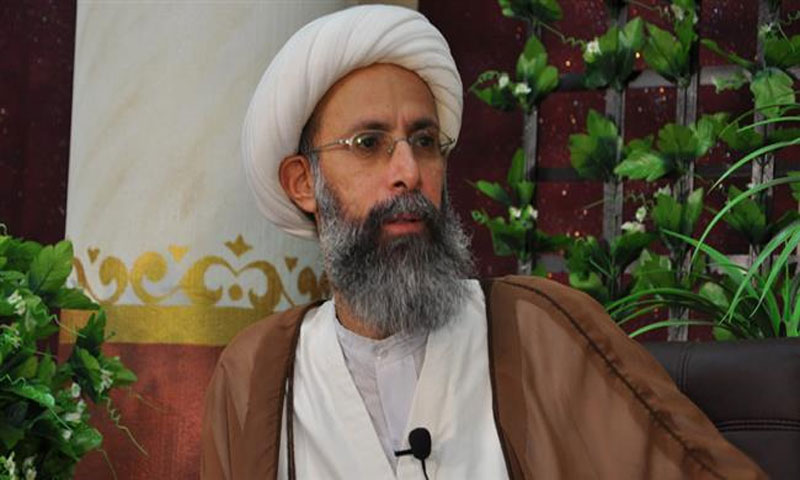The trial of prominent Muslim Shia cleric and political activist Sheikh Nimr al-Nimr was marred with human rights violations. Sheikh Nimr from the Awamiyah village in the Qatif region in the Kingdom of Saudi Arabia was a vocal critic of the Saudi government and called for peaceful political reforms. He advocated for nonviolent civil disobedience of discriminatory government policy that led to the marginalization of the Kingdom’s Shia community. The Saudi government wrongfully tried and executed Sheikh Nimr on charges that criminalized his freedom of expression.
In 2011, Saudi Arabia experienced a wave of protests in the Eastern Province. Sheikh Nimr was a vocal supporter of these demonstrations but went into hiding for fear of government reprisal. In 2012 without an arrest warrant, authorities found and violently arrested him under disputed circumstances. Human rights organizations report that Saudi officials chased Sheikh Nimr’s car until he crashed, forced him out of the car, and shot him. Authorities held Sheikh Nimr in an isolation cell in a security forces prison hospital during much of his detention. Authorities prevented Sheikh Nimr from speaking to his family for the first few months. Saudi authorities did not provide Sheikh Nimr adequate medical treatment for the injuries he sustained in the course of his arrest, leading to further medical complications and the partial paralysis of his leg. It was only a few days before his execution that authorities finally permitted surgery on his back to remove the bullet.
Throughout his hearings in 2013 and 2014, authorities repeatedly violated Sheikh Nimr’s right to a fair trial. The government held Sheikh Nimr for over 260 days without charge. The state reportedly did not initially submit the charges to Sheikh Nimr’s defense team. The judge failed to notify the defense team about hearings in a timely manner. Further, the court denied the defense team the opportunity to cross-examine the police officers that had arrested Sheikh Nimr. The judge’s decision to deny the defense team an opportunity to cross-examine was in violation of both Saudi Arabian and International Law. Moreover, the government replaced the judge mid-trial. Further, Sheikh Nimr was not permitted to conduct regular confidential conversations with his lawyer or even to have access to a pen and some paper.
On 15 October 2014, the Specialized Criminal Court (SCC) sentenced Sheikh Nimr to death for crimes related to his peaceful free speech, including disobeying the ruler, inciting sectarian strife, and encouraging demonstrations. The court based the sentence on sermons delivered by Sheikh Nimr; in a study of his sermons and preaching activities, human rights organizations have failed to find any examples of incitement to violence or terrorist activity. Rather, Sheikh Nimr was simply exercising his right to free expression. Some of the charges brought against him, including disobeying the ruler, are inconsistent with international human rights law as such charges criminalize freedom of expression.
On 17 November 2014, the Working Group on Arbitrary Detention and several Special Rapporteurs issued a report to the Office of the High Commissioner for Human Rights (OHCHR) stating that Sheikh Nimr’s trial “did not meet the most stringent due process and fair trial guarantees.” They further expressed concern at regarding allegations of severe torture and ill-treatment throughout Sheikh Nimr’s detention, most of which he spent in solitary confinement. Moreover, they expressed concern over allegations of denial of medical treatment.
His arrest and trial was in violation of his right not to be arbitrarily deprived of his liberty as set forth in article nine of the Universal Declaration of Human Rights (UDHR). Further, the government violated his right to fair proceedings before an independent and impartial tribunal, as set forth in article 10 of the UDHR. Along with this, Sheikh Nimr did not have adequate access to a lawyer, which is enshrined in the Basic Principles on the Role of Lawyers. Further, Sheikh Nimr’s alleged torture is in violation of article 15 of the Convention against Torture (CAT) to which Saudi Arabia joined in 1997. The government further failed to fulfill Sheikh Nimr’s right to the enjoyment of the highest attainable standard of physical and mental health when it refused to provide him with medical treatment while in detention.
On 4 March 2015, the Saudi media announced that the appeals court would not object to the SCC’s original ruling. The Supreme Court of Saudi Arabia ratified Sheikh Nimr’s sentence in October 2015, leaving him no further avenues for appeal. On 2 January 2016, the Saudi government carried out a mass execution of 47 individuals including Sheikh Nimr. Sheikh Nimr exercised his right to free expression to voice his discontent over the decades long discriminatory practices aimed at the Shia population by the Saudi Arabian government. The arrest, trial, and execution of Sheikh Nimr is another example of the ongoing human rights violations committed by the government of Saudi Arabia.
The increasing number of executions in 2016 illustrates the Saudi government’s disregard for international human rights standards as it continues to utilize vague laws to criminalize dissent. Sheikh Nimr’s execution, alongside 46 individuals, set a dangerous precedent for the new year. His trial highlights the inconsistencies within the Saudi criminal justice system. Therefore, under its international obligations the Saudi government must guarantee legal counsel and fair trials to all charged with a crime. Simultaneously, it needs to hold all individuals involved in torture accountable. The international community can no longer remain silent as the gulf kingdom continues to violate human rights and therefore needs to maintain pressure on the Saudi government to abide by its international commitments.
Mobashra Tazamal is an Advocacy Fellow at ADHRB





